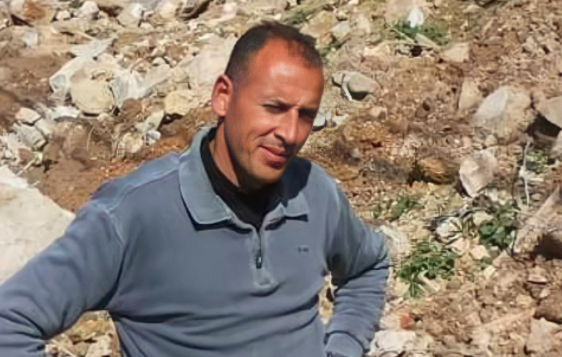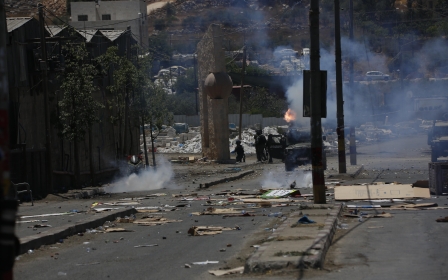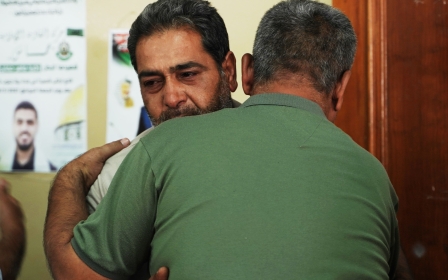Israeli forces kill Palestinian near flashpoint West Bank town

A member of Israel's armed forces killed a Palestinian man in the northern occupied West Bank on Tuesday night, according to the Palestinian Authority (PA) Ministry of Health.
Shadi Omar Lotfi Salim, a 41-year-old plumber, was killed at the entrance of the town of Beita in the West Bank district of Nablus.
Moussa Hamayel, the deputy mayor of Beita, told AFP that Salim was shot dead on his way home from work.
"He was killed in cold blood," Hamayel said, adding that there were no protests in the area on Tuesday night.
Hamayel, who described Salim's death as an "execution", said the plumber "did not pose any danger to the occupation soldiers, and that there were no confrontations at the entrance of the town".
Local residents also told Reuters that there were no disturbances around Beita when Salim was shot dead.
Their accounts run contrary to claims by the Israeli army that Salim had approached the troops with an iron bar in his hand.
An Israeli military spokeswoman said Salim had "advanced rapidly" towards Israeli troops, who reportedly fired warning shots in the air before shooting Salim.
Frequent protests
Beita has been the scene of frequent protests since May, when dozens of Israelis began building a settlement outpost known as Eviatar, in violation of international law, on a nearby hilltop where many Palestinians have farmland and homes.
Salim is the seventh Palestinian to have been killed by Israelis since May in the area of Beita
Following weeks of Palestinian protests and deadly crackdowns by Israeli forces, Israeli Prime Minister Naftali Bennett struck a deal with the settlers that saw them leave the Eviatar outpost.
However, the settler homes remain standing on Beita village lands, with Israeli armed forces stationed there while the Israeli defence ministry assesses whether the area could, under Israeli law, be declared state land.
The agreement between the Israeli government and Eviatar settlers was rejected by the mayor of Beita, who said last Thursday that "clashes and protests will continue" as long as any Israeli "remains on our land".
All settlements in the West Bank and East Jerusalem are deemed illegal by most of the international community.
Middle East Eye delivers independent and unrivalled coverage and analysis of the Middle East, North Africa and beyond. To learn more about republishing this content and the associated fees, please fill out this form. More about MEE can be found here.





